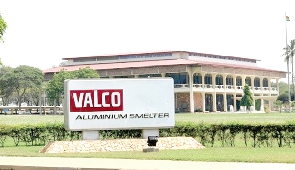State-owned firm Volta Aluminium Company Limited (VALCO) needs some US$600million capital to revamp its operations.
VALCO is in desperate need of a fresh capital injection to retrofit its aging machinery and move the smelter to more than 7.5 times its current installed production capacity.
The country’s only aluminum smelter wants a partner to expand its production from the current 40,000 tonnes per annum (tpa) to 300,000tpa of aluminium; a 650% increase.
Modernisation and expansion will improve VALCO’s efficiency and ensure the company is positioned to sustainably grow and be profitable, and contribute toward establishing and realising linkages of the upstream and downstream components of the Master-plan for the country’s Integrated Aluminium Industry (IAI).
Ghana Integrated Aluminium Development Corporation (GIADEC) and VALCO estimate that an amount of US$600million is required.
It is in line with this that government granted approval for GIADEC and VALCO, in June this year, to identify and engage a strategic partner with the financial and relevant capacity to provide the needed investment and technical wherewithal, plus strategic international linkages.
The company is confident that retrofitting will transform it from a loss-making entity into a best-in-class profit-making and shareholder value-maximising entity.
Strategic private participation will further position it to promote government’s industrialisation agenda, contributing substantially to socio-economic development and growth of the economy. VALCO’s smelting operations will allow significant value addition to Ghana’s bauxite resources.
It is estimated that on an annual basis, bauxite valued at approximately US$75million can generate US$180million after refinery and US$600million after smelting.
Smelting is the key linkage between the upstream and downstream sector of the aluminium industry, where a tonne of aluminium can generate US$6,000 – which is three times the value after smelting (US$2,000 per tonne).
Currently, VALCO is operating at 40 percent capacity with about 750 workers.
However, after retrofitting and modernising the plant to increase production from the current 50,000 to 300,000 tonnes of aluminium per annum, the smelter will create more high-paying direct and indirect jobs.
Business News of Thursday, 20 July 2023
Source: thebftonline.com













